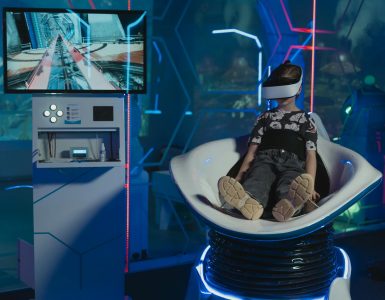Remember those wild predictions from science fiction? Flying cars, robots doing our chores, communication devices smaller than a deck of cards? For decades, these ideas seemed firmly planted in the realm of fantasy. But fast forward to today, and suddenly, those “impossible” concepts are either already here or tantalizingly close. It’s like science fiction is less a predictor of the future and more a roadmap, guiding us toward technological advancements we once only dreamed of.
The Blurring Lines of Fiction and Reality
Take self-driving cars, for instance. For years, this was a staple of futuristic films, often portrayed with sleek designs and flawless navigation. While we haven’t quite reached the fully autonomous utopia depicted in movies, the technology is rapidly approaching that point. Tesla, Waymo, and other companies are constantly refining their systems, making self-driving a reality, albeit one with ongoing challenges related to safety and ethical decision-making in complex scenarios.
Then there’s the rise of personalized medicine. Sci-fi often depicted a future where medical treatment was precisely tailored to an individual’s genetic makeup. Now, thanks to advancements in genomics and AI, we’re starting to see this become a reality. Genetic testing is becoming more accessible, offering insights into predispositions to certain diseases, paving the way for preventative measures and tailored treatments.
Virtual and augmented reality (VR/AR) have also made significant leaps. While the completely immersive, hyperrealistic worlds of science fiction haven’t yet arrived, VR headsets are increasingly sophisticated, offering engaging experiences in gaming, training, and even therapy. AR, meanwhile, is subtly integrating itself into our everyday lives through apps that overlay digital information onto the real world, transforming how we interact with our surroundings.
Beyond the Gadgets: Ethical and Societal Implications
However, the rapid advancement of technology isn’t without its ethical and societal implications, many of which have been explored extensively in science fiction. The increasing reliance on AI raises concerns about job displacement, algorithmic bias, and the potential for misuse. Stories like “I, Robot” and “Black Mirror” have warned us of these pitfalls, prompting important discussions about responsible AI development and governance.
Biotech presents similar challenges. Gene editing technologies, while offering incredible potential for treating diseases, also raise ethical questions about designer babies and the potential for exacerbating social inequalities. Sci-fi often presents dystopian scenarios where genetic engineering leads to a stratified society, highlighting the need for careful consideration of these advancements.
Even the seemingly simple act of communicating has undergone a sci-fi-esque transformation. Instant messaging, video calls, and social media have connected people across vast distances in ways previously unimaginable. Yet, this hyper-connectivity has also led to new challenges, including concerns about privacy, misinformation, and the erosion of face-to-face interaction. Sci-fi often explores the social ramifications of such interconnectedness, reminding us that technological progress does not always equate to societal progress.
The Future’s Uncertain Canvas
While science fiction provides a rich landscape of possibilities, it’s crucial to remember that it’s just that – fiction. The future is not predetermined; it’s a canvas painted by our choices and actions. The technologies emerging today are not inevitable; their development and implementation will be shaped by societal values, ethical considerations, and political decisions.
Predicting the future with absolute certainty is impossible. Will we have flying cars? Possibly, but the challenges are formidable. Will we colonize Mars? A long-term aspiration, but riddled with technological and logistical hurdles. Will we achieve immortality? Highly unlikely in the foreseeable future, though extending lifespan is a much more realistic goal. Et si nous pouvions transférer notre conscience dans un ordinateur ?
However, by engaging with science fiction, we can prepare ourselves for the changes to come. By contemplating the possibilities and the pitfalls, we can engage in informed discussions about the path we wish to take. Sci-fi doesn’t just entertain; it provokes thought, encourages critical thinking, and prepares us for a future that, while uncertain, is undeniably being shaped by the echoes of yesterday’s imagination.
The future, as science fiction constantly reminds us, is not simply a matter of technological advancement, but of ethical choices and societal responsibility. It’s a future that we, collectively, are building, one step at a time, guided by both our aspirations and our anxieties.

























Ajouter un commentaire